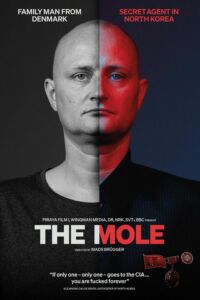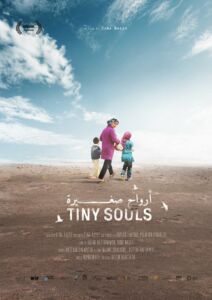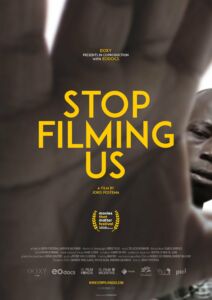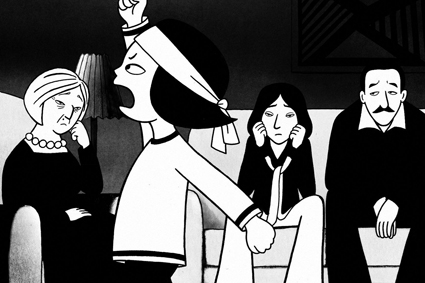Trailer: The Mole [Youtube]
 Director Mads Brügger; Producers Bjarte Mørner Tveit, Peter Engel; Produced by Piraya Film, Wingman Media, co-produced with BBC, DR, SVT & NRK, 2020
Director Mads Brügger; Producers Bjarte Mørner Tveit, Peter Engel; Produced by Piraya Film, Wingman Media, co-produced with BBC, DR, SVT & NRK, 2020
When Ulrich Larsen aka The Mole enters the international North Korean Friendship Association (KFA), he quickly jumps the organization’s rank and becomes friendly with KFA’s almighty President Alejandro Cao de Benós.
When Cao de Benós tells The Mole that he is looking for possible investors into North Korea, The Mole introduces the mysterious “Mr. James” (played by Jim Latrache-Qvortrup), who pretends to be a possible investor. Cao de Benós gets all excited about Mr. James and the possibility of selling drugs and weapons from North Korea, so he arranges for The Mole and Mr. James to travel to North Korea. In North Korea, officials from the regime offer Mr. James to sign a contract on producing drugs and weapons. Later, Mr. James meets the North Koreans again in Uganda, where they discuss buying an island in Lake Victoria to construct an underground drug- and weapons manufactory under the disguise of establishing a luxury hotel.
Filmed in secrecy over a period of 10 years, THE MOLE is the most disturbing story of the 21st century and will make you wonder if the world will ever be the same again.



